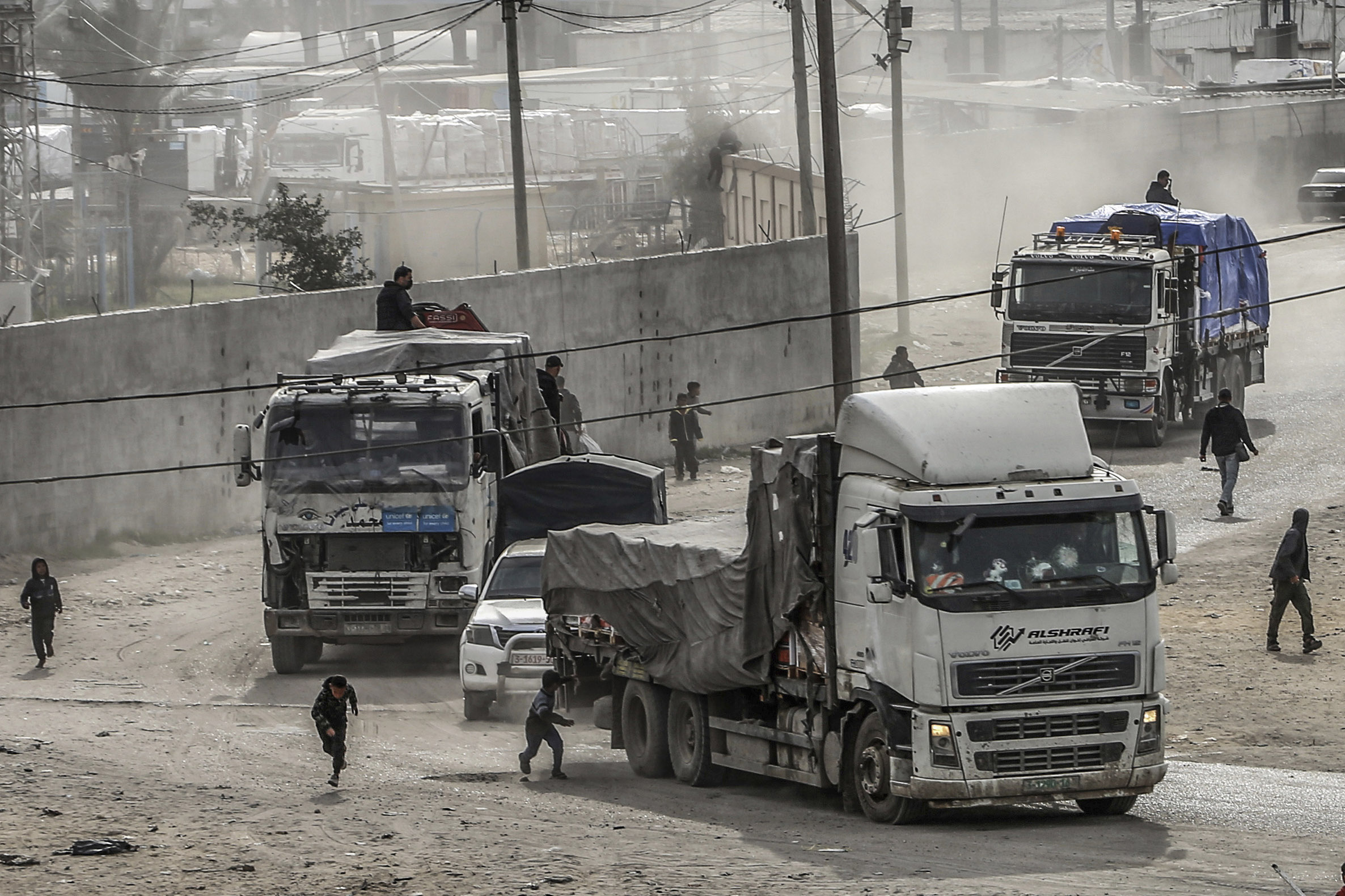Examining issues around possible solutions to Israel-Hamas War

Trucks carrying humanitarian aid enter the Gaza Strip through the Kerem Shalom crossing border.
Abed Rahim Khatib/picture-alliance/dpa/AP Images
Experts across disciplines offer various perspectives in Weatherhead series
The Weatherhead Center for International Affairs on Wednesday will convene a panel of experts from across disciplines and perspectives to examine key issues surrounding potential solutions for peace in Israel, Gaza, and the West Bank.
“The fact of the matter is, you have 7 million Jews and 7 million Palestinians living in this territory,” said Melani Cammett, moderator and Weatherhead Center director. “By necessity, they need to find some way to live together. The current status quo is clearly not working. It’s not serving anyone — except perhaps for the politicians who benefit from violence and conflict.”
The event, titled “The War in Israel/Palestine: Scenarios for Peace,” is the second in a series of online discussions from Weatherhead designed to illuminate the battle’s complex roots as well as possible paths forward. The initiative kicked off last month with “The War in Israel/Palestine: A Primer,” which provided a historical overview from World War II to the present. A subsequent installment will consider the conflict’s various geopolitical actors.
As the fighting continues, conversations like these meet a critical need for research-based knowledge and dispassionate analysis. “We desperately need to have these reasoned, informed discussions,” said Cammett, who is also the Clarence Dillon Professor of International Affairs in the Department of Government..
The panelists will include Diana Buttu, a lawyer and Division of Continuing Education instructor who served as a spokesperson and legal adviser to negotiators with the Palestinian Liberation Organization from 2000 to 2005.
Also featured is Shai Feldman, a professor of Israeli politics and society and founder of the Crown Center for Middle East Studies at Brandeis University, and sociologist Yuval Feinstein, an associate professor at University of Haifa and Weatherhead Center affiliate who studies nationalism and national identities. In November, the Times of Israel published Feinstein’s detailed plan for “a relatively smooth and safe split of the territory into a two-state reality,” complete with a tunnel connecting Gaza and the West Bank.
Leila Farsakh, a UMass political scientist, rounds out the panel. She explored the challenges of various one-state solutions, all built upon equality and advancing individual rights as editor of the 2021 essay collection “Rethinking Statehood in Palestine: Self-Determination and Decolonization Beyond Partition.”
Not represented in the lineup are extremist positions, Cammett emphasized. “Nobody on the panel would reject any of these solutions out of hand,” she said. “These solutions by their very nature require compromise, dialogue, and exchange.”
Nor does anyone expect the conversation to yield an immediate solution. “That would be naïve,” Cammett said.
But that doesn’t mean that talk is futile. Rather, it’s important to remember that good-faith conversation has made possible results elsewhere. “There are many contexts around the world where you’ve had violent, bloody conflict that is politicized around ethnicity and religion,” Cammett said. “Over time, those people have learned to live together. Over centuries, it becomes irrelevant and inconsequential in their daily lives.”




